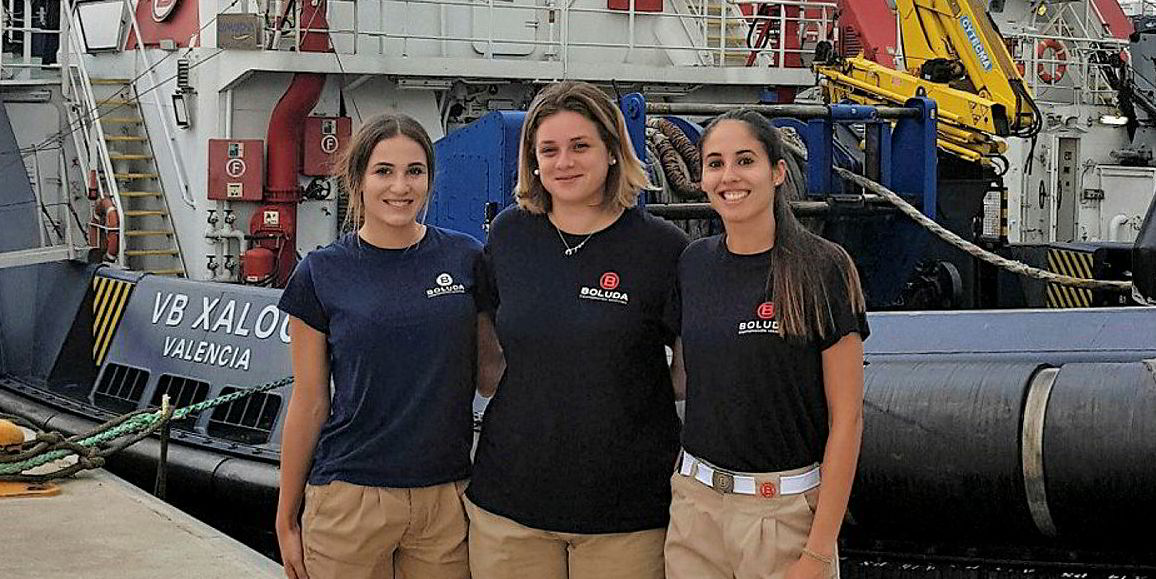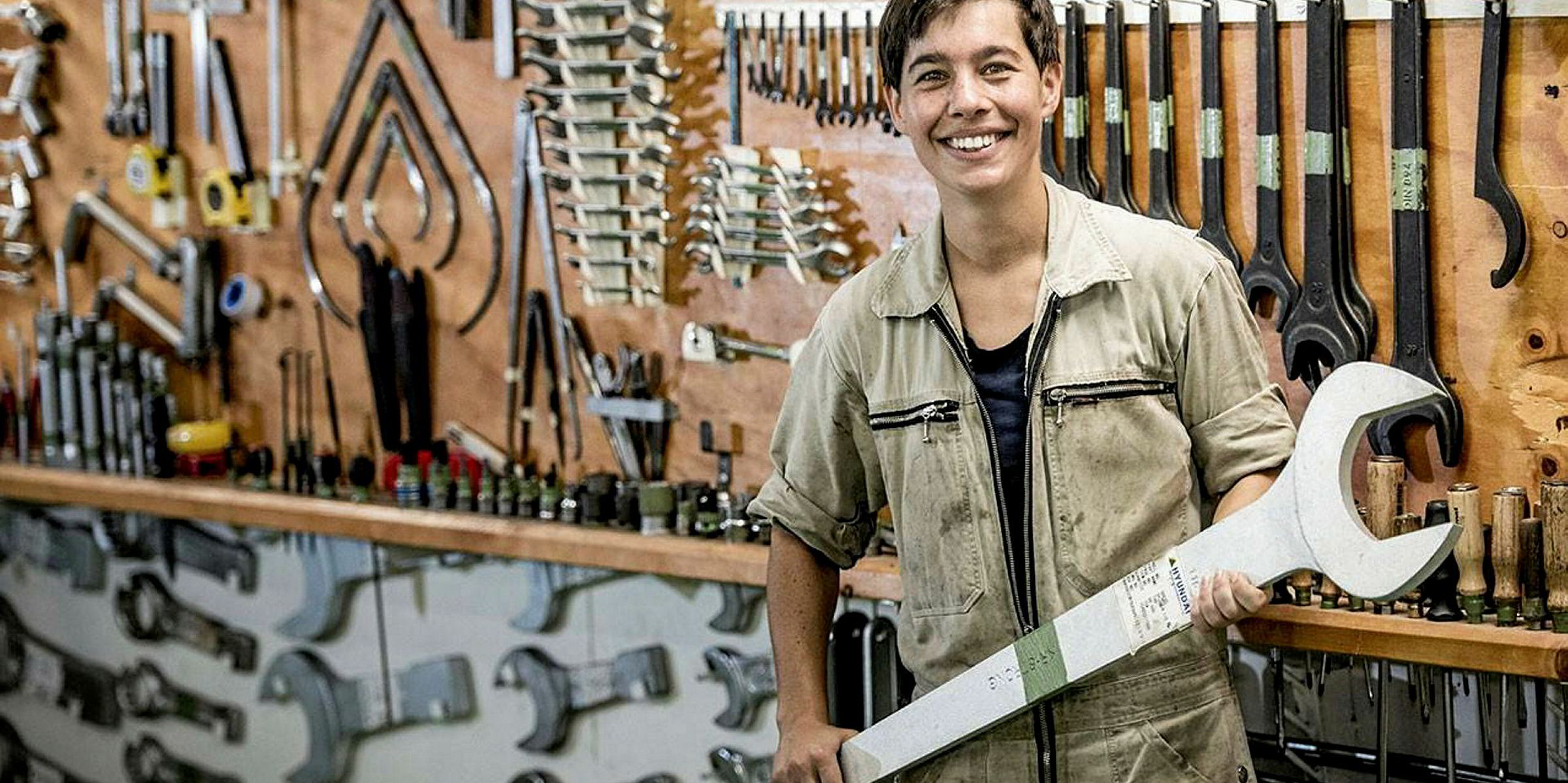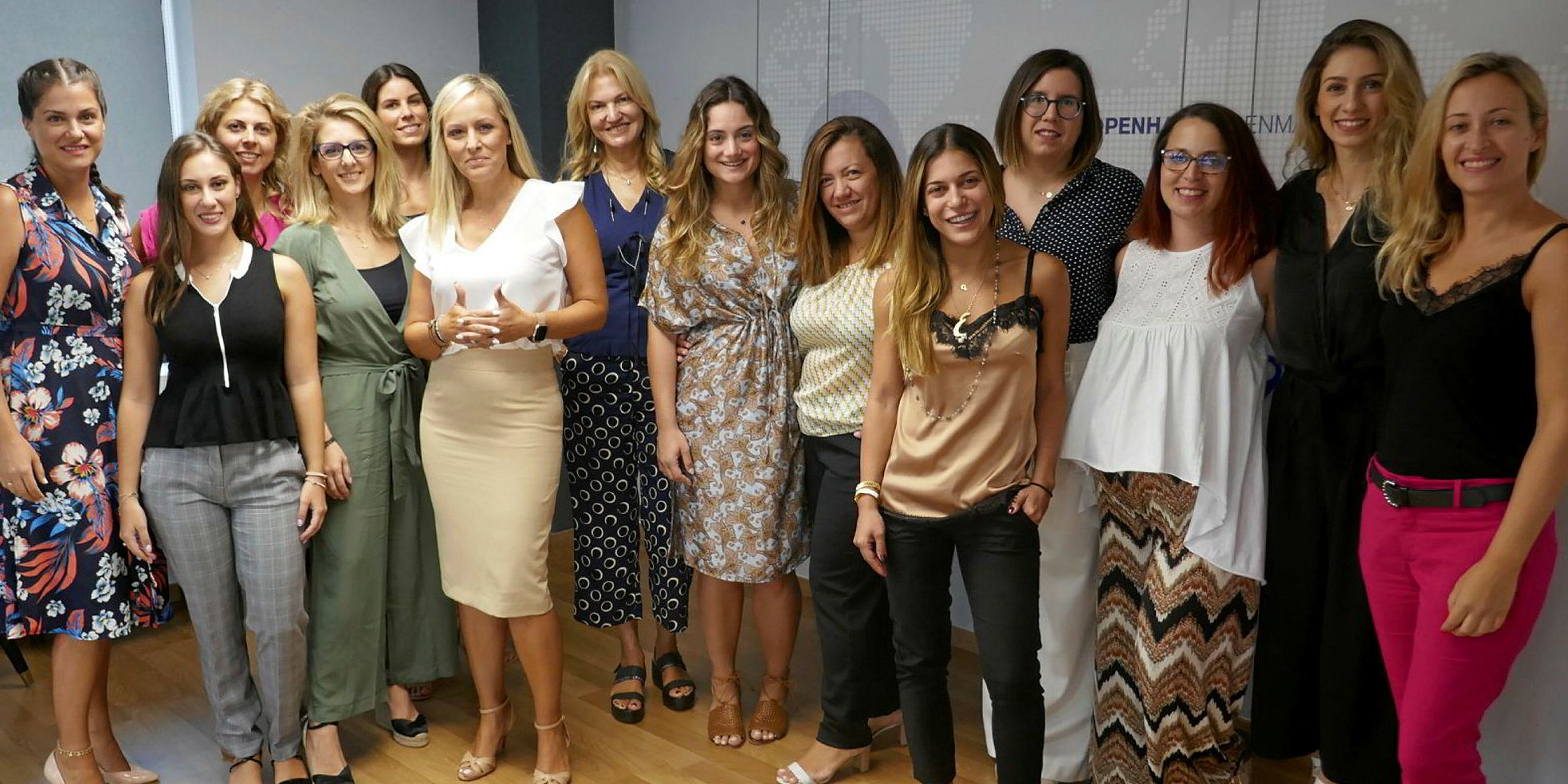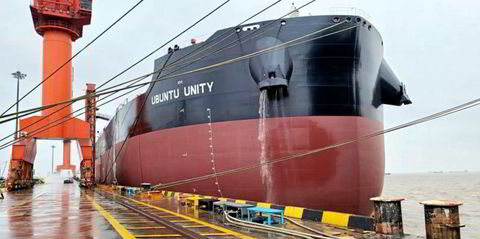Three young women are breaking new ground and glass ceilings after becoming Spain’s first women to join the towage industry as tugboat crew.
Mireia Garcia Martinez, 27, Judith Garzon Tora, 22 and 23-year-old Neus Domingo Ramos, aged 23 have all recently been hired by Boluda Towage Spain.
“Mireia, Judith and Neus are leading the entry of women into an historically male-dominated sphere,” said the company, which is part of Boluda Corporacion Maritima.
“Despite being female, they defend their right to be called ‘sailors’ and they are very happy to feel ‘one of the crew’ after the ‘warm welcome from our colleagues’.”
Martinez is said to have followed in the footsteps of her brother and her father who work as tug skippers in Boluda Towage’s Sagunto base.
“It’s a sector that I’ve always known in my house,” she said.
Similarly, Tora, who is a mother to a 16-month-old girl, was always said to be motivated by her father’s work in the tugboats of Boluda Towage.
Ramos, in contrast, took a degree in geriatric care after finishing school, but after attending for a week she is said to have realised that her destiny was to “work outdoors, no matter whether as a sailor or a farmer, but given that my family work in mooring, the sea drew me in as well in the end.”
Our co-workers didn’t put up any barriers, on the contrary, they made things easy. I felt very supported by my colleagues right from the first day
Mireia Garcia Martinez
Ramos studied intermediate vocational training in Alicante for a year and a half to obtain a coastal skipper qualification, according to Boluda Towage.
Martinez and Tora enrolled on a two-year advanced degree in September to qualify as bridge officers. Ramos is due to enroll on the same degree next year.
Boluda Towage says that according to statistics only 0.38% of those currently working in the maritime sector in Spain are women.
However, Mireia thinks that “will change little by little, as women learn more about this profession, because the maritime sector has traditionally been male-oriented.”
The three women don’t put too much importance on being the “torchbearers” for women’s entry into a sector culturally and historically made up of men.
Tora says it’s a “new alternative job opportunity for women” who want to join the maritime sector. It’s just like any other job, she said, only not as well known.
All three maintain that their colleagues have created “an air of normality” in their work environment, nothing like the “sexist stereotypes” of the past.
“There is a very good atmosphere and no one has made any objections,” they comment, explaining that they see a clear “cultural change” that has evolved from previous generations.
They admit that women may have ruled out working as tugboat seafarers because they thought “that it was more like a male job, that would take a lot of strength”.
“The latest technology adopted in Boluda Towage tugs is a great help, makes it more comfortable to work,” adds Martinez.
While the tug crews have accepted the women, its is their friends who have expressed the biggest surprise at their chosen profession.
“You’re the first person I know to work on a tug,” said Tora, quoting the comments of one friend.
In contrast, Martinez said: “Our co-workers didn’t put up any barriers, on the contrary, they made things easy. I felt very supported by my Sagunto colleagues right from the first day”.
Ramos added: “We are just one of the team, nothing more. We don’t feel the need to prove ourselves to the guys. We just have to show that we have learned what to do.”






